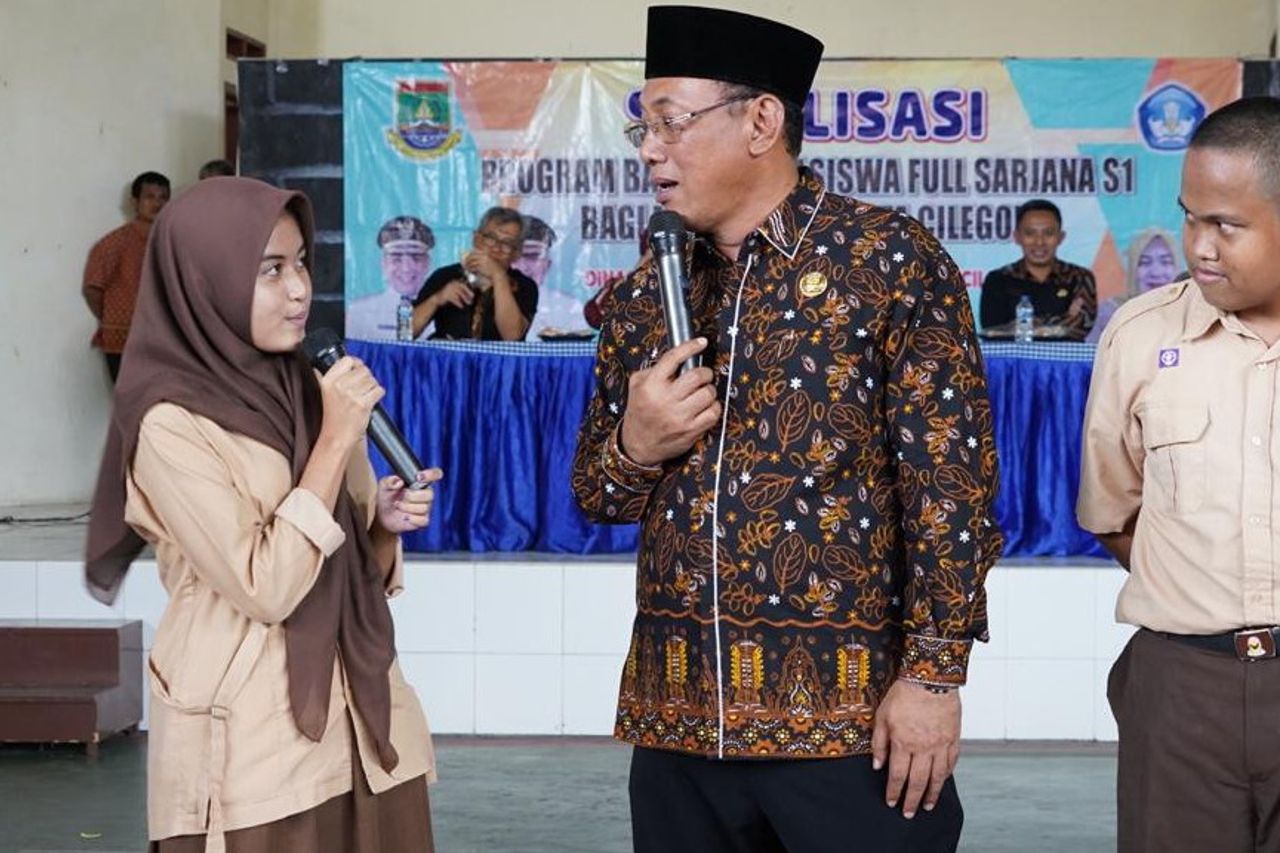Strategic Steps By The Cilegon City Government In Managing Budget And Increasing Services

JAKARTA - The budget deficit does not mean that financial management is not optimal, but can reflect strategic investment for development. With good management, this situation can actually be an opportunity to encourage strategic investment that brings benefits to the community.
This is what the Cilegon City Government is facing, which is handling the issue of a budget deficit of around Rp. 100 billion. According to Maman Mauludin, the Regional Secretary of the Cilegon City Government, the budget is allocated for various important infrastructure projects, such as road construction, RSUD buildings, the Indonesian Ulema Council Office (MUI), the Social Service Office (Dinsos), the kelurahan office, as well as two new school buildings, namely SMPN 14 and SMPN 15.
These projects are expected to be able to have a positive impact on community services while increasing regional competitiveness.
Regarding its obligations to third parties, the Cilegon City Government has developed a comprehensive strategy, and it is hoped that it will be completed in February 2025. The steps include optimizing regional income, restructuring spending, and rescheduling payment obligations.
Commitment to Welfare Improvement
During his tenure from 2021 until now, the Mayor of Cilegon Helldy Agustian has recorded various achievements. In addition to the focus of education, health, and infrastructure development, such as roads and school buildings, the City Government also pays special attention to increasing regional allowances and honorariums for various professions, such as State Civil Apparatus (ASN), honorary staff, and teachers.
From 2021 to 2024 it went smoothly, but in the fourth quarter, this policy was hampered by a budget deficit, so that grants and social assistance were not realized.
"Regarding grants and social assistance, if the income is insufficient, according to the Circular Letter of the Minister of Home Affairs, it may not be implemented, except those mandated by the provisions of the legislation," said one of the Cilegon City Government officials.
Here are some improved allowances and honorariums that have been realized:
Allowances for Income Improvement (TPP) for ASN increased by 5 percent per year. Honor honors of honorary teachers rose from Rp450 thousand to Rp675 thousand per month, which is paid per 3 months. For those who work more than 10 years, honorariums to Rp1 million. alone Teacher incentives in remote areas increased: teachers received an additional Rp500 thousand, school principals Rp1 million, supervisors Rp3 million, and supervisors Rp1 million per month. Hibah of the Ministry of Religion for honorarium increase of madrasah teachers (Ibtidaiyah, Tsanawiyah, Aliyah) increased 50 percent, from Rp22 billion to Rp33 billion. So that madrasah teacher honorarium increased from Rp450 thousand per month to Rp675 thousand per month. Honor RT/RW rose which was originally Rp500 thousand per month and paid per three months, now it is Rp1 million rupiah and paid per month. Honor Secretary of RT/RW and RT/RW Treasurer which was originally RT/RW, was Rp150 thousand and paid per three months is currently to Rp300 thousand per month and paid per month. Honor Cader increased, from Rp200 thousand per month and paid every three months, to Rp300 thousand per month, and is currently paid per month. Honor Linmas increased from Rp100 thousand per month which is paid per three months to Rp200 thousand per month and is currently paid per month. Honor THL (off daily entrepreneur) and TKK (continary labor) increases by 10 percent.
The increase in Income Improvement Allowances (TPP) for State Civil Apparatus (ASN) shows the attention of the City Government (Pemkot) to improve the quality of service to the community.
In addition, the increase in honorary honorarium reflects the City Government's concern for the welfare of local workers which is an important part of public services. On the other hand, additional incentives for teachers in remote areas reflect the City Government's support for the development of education in difficult-to-access areas.
